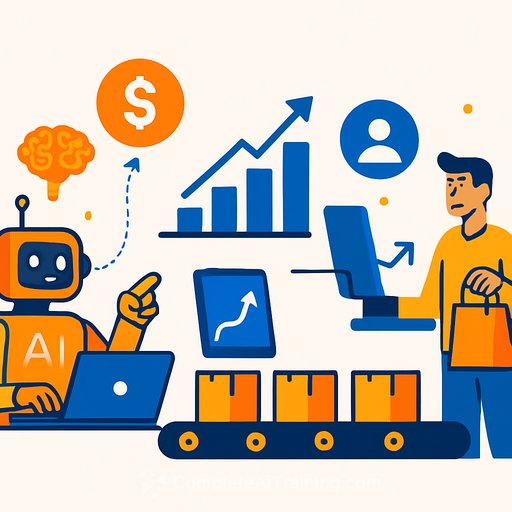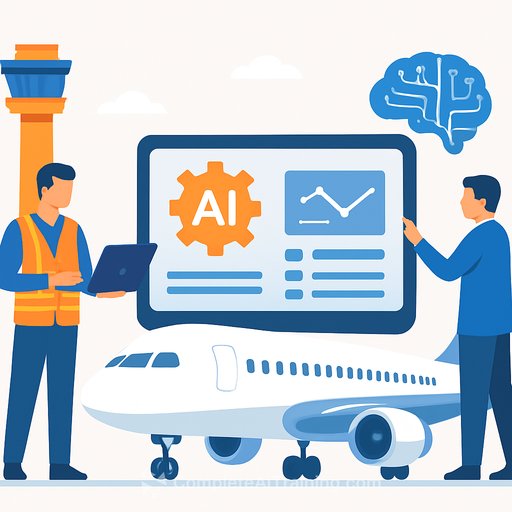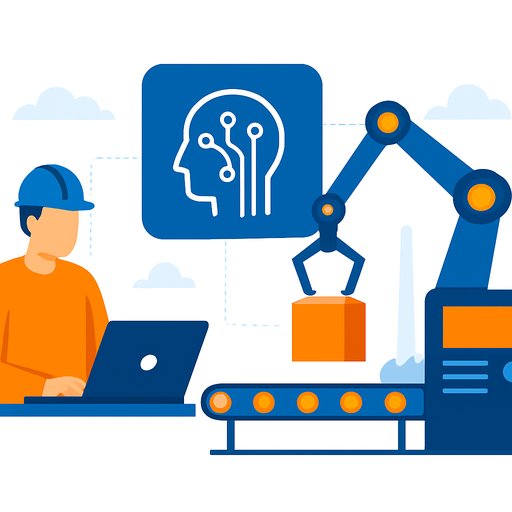How AI Helps Swiss Retail Cut Costs and Boost Efficiency
Artificial intelligence is proving its value across Swiss retail operations by reducing costs and improving efficiency. Estimates suggest AI could unlock CHF 127 billion in value by 2030. Among Swiss companies already using AI, 75% report productivity gains and 83% have cut costs. Practical pilots focused on inventory, shipping, forecasting, and automation deliver measurable results.
Cost Savings Across the Retail Value Chain
AI tightens forecasting, automates replenishment, and optimizes warehouse layouts. Generative AI speeds up planning and surfaces supply risks, enabling near-real-time decisions instead of slow, costly cycles. Case studies show inventory levels and holding costs cut by 20–50%, shipping costs down 15–30%, and warehouse footprints reduced by up to 70% through automation.
- Inventory & holding costs: 20–50% reduction
- Shipping & logistics costs: 15–30% reduction
- Warehouse footprint: Up to 70% reduction
Inventory Management & Supply-Chain Optimization
Swiss retailers with tight margins benefit from AI-driven predictive analytics that unify point-of-sale, e-commerce, and market data. This increases forecast accuracy by 10–20%, helping keep the right products stocked in the right locations. AI also factors in social trends, weather, and promotions to reduce rush shipments and lost sales.
- Forecast accuracy: 10–20% improvement
- Lost sales reduction: Approximately 20%
- Manual forecast work: Significant reduction
Personalization, Recommendations & Dynamic Pricing
AI-powered personalization increases customer engagement and drives revenue. For example, Digitec Galaxus saw a 40% lift in click-through rates using recommendation engines. Dynamic pricing and targeted promotions help protect margins and increase average order values, making personalization accessible to smaller retailers.
Customer Service Automation & In-Store Operations
Automated chatbots and live chat tools reduce routine inquiries, freeing store staff to handle complex tasks. Swiss Post’s chatbot rollout handled over 4,000 WhatsApp inquiries within weeks, improving first-contact resolution. This leads to fewer repetitive calls, faster service, and better staff utilization.
- WhatsApp inquiries: 4,000+ in weeks
- Live chat inquiry reduction: 77.4%
- Chatbot claims interactions: 765 in 6 weeks, 60% outside office hours
Finance, Fraud Detection & Back-Office Automation
AI streamlines finance operations by automating accounts payable processes, increasing invoice processing by up to 3 times per employee and reducing turnaround from nearly 18 to just over 3 days. Automation improves accuracy and speeds supplier payments while detecting fraud more effectively.
- Invoices processed per FTE: Up to 3× more
- Invoice processing time: Reduced to 3.4 days
- Automatic processing rate: 89%
- Data extraction accuracy: Approximately 98%+
Risk, Governance & Data Privacy
Swiss retailers must comply with a risk-based, sector-specific AI regulatory approach. The Federal Act on Data Protection applies to AI systems, requiring transparency, informing users when interacting with machines, and conducting impact assessments for high-risk applications.
SME Adoption, Talent & Practical Barriers
More than half of Swiss SMEs use AI but face challenges like talent shortages, fragmented suppliers, integration costs, and unclear regulations. Successful strategies include partnering through networks like SAIROP, prioritizing cybersecurity, and investing in staff retraining to adapt alongside AI tools.
Platforms, Partnerships & Swiss Case Studies
Local partnerships provide Swiss retailers with enterprise-grade AI platforms that ensure data sovereignty and trusted controls. Swisscom’s AI platform offers data storage within Switzerland and access to powerful computing resources, supporting pilots with strong governance.
Implementation Roadmap for Retail Leaders
Adopt AI through focused experiments:
- Weeks 1–4: Conduct data audit, map processes, and build ROI model.
- Weeks 5–12: Launch a pilot with clear KPIs and train the team.
- Weeks 13–24: Scale pilots, integrate systems, and create operational playbooks.
- Months 7–12: Develop advanced AI features and mature governance.
Conclusion
Swiss retail is already benefiting from AI with improved decision-making, reduced manual work, and better customer experiences. Practical pilots in forecasting, automation, and personalization can deliver quick savings and operational gains while maintaining privacy and control.
Frequently Asked Questions
- What cost savings and productivity gains can Swiss retailers expect?
AI could create CHF 127 billion in value by 2030. Most Swiss firms using AI report productivity and cost improvements. - Which use cases offer the fastest ROI?
Inventory forecasting, personalization, customer service automation, and back-office finance automation provide quick returns. - What regulations should be followed?
Ensure transparency, inform users about AI interactions, and perform impact assessments as required by Swiss data protection laws. - What barriers do SMEs face and how can they overcome them?
Challenges include talent shortages and integration costs. Partnering through networks and investing in retraining help overcome these. - How should retail leaders start AI projects?
Begin with a four-week data audit and ROI analysis, then run a pilot with measurable KPIs. Training programs focused on AI skills can support scaling.
For teams looking to build practical AI skills for the workplace, training like the AI Essentials for Work bootcamp offers applied tools and prompt techniques over 15 weeks, helping convert pilots into real cost savings.
Your membership also unlocks:





